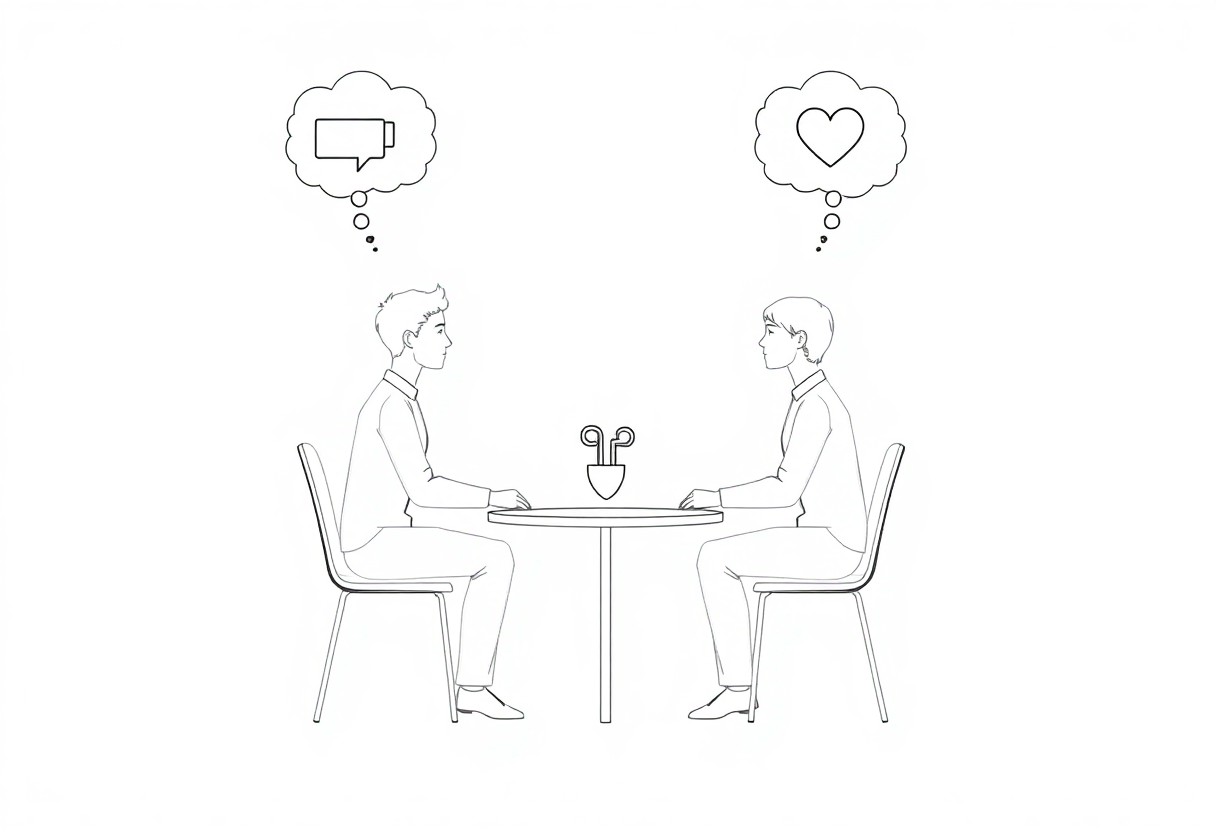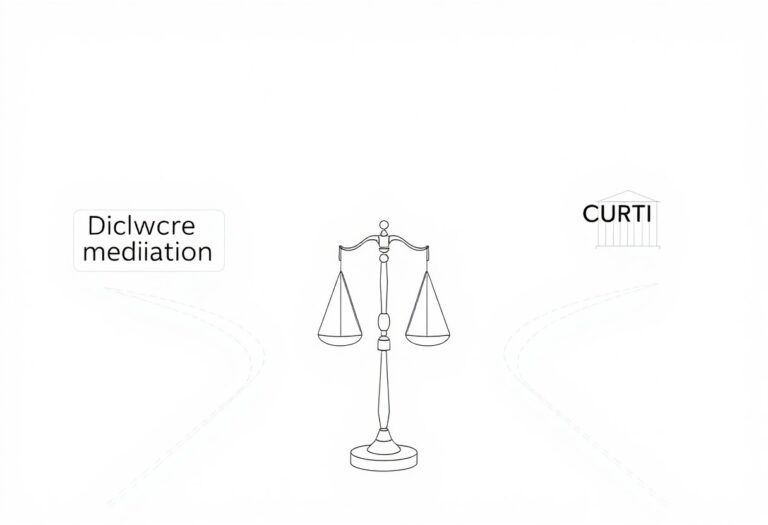Emotional Intelligence in Mediation – Why It Matters
Just as effective communication is key in mediation, so too is your ability to understand and manage emotions—both your own and those of others. Emotional intelligence plays a significant role in facilitating a constructive dialogue between conflicting parties, allowing you to navigate sensitive topics with empathy and insight. By honing this skill, you can foster a more positive environment, enhance collaboration, and ultimately lead to more successful resolutions. This post will explore the importance of emotional intelligence in mediation and provide valuable insights on how to develop it further.
The Role of Emotional Awareness in Mediation
Emotional awareness serves as a cornerstone in the mediation process, facilitating connection and understanding between parties. Recognising and understanding your own emotions, as well as those of others, enables you to navigate discussions more effectively. This awareness allows for the identification of underlying issues, which may not always be verbally expressed, thus paving the way for more meaningful dialogue and resolution.
Recognising Emotions: The Key to Effective Dialogue
Effective dialogue is underpinned by the ability to recognise emotions at play. By identifying feelings such as frustration, fear, or resentment, you can approach conversations with empathy. This understanding not only fosters a supportive environment but also encourages openness, allowing parties to express themselves without fear of dismissal or hostility.
The Impact of Emotional Misunderstanding on Conflict Resolution
Emotional misunderstandings can derail mediation efforts, leading to heightened tensions and unresolved conflicts. When parties misinterpret the emotions of others—whether it’s assuming hostility where there is none or failing to recognise vulnerability—the outcome can spiral into an unproductive exchange, severely limiting your chances of arriving at a satisfactory agreement.
The intricacies of emotional misunderstanding can significantly obstruct progress in conflict resolution. For instance, consider a scenario where one party perceives defensive behaviour as aggression, resulting in an escalation of conflict rather than constructive dialogue. These misinterpretations can create a feedback loop of misunderstanding, with each party’s assumptions leading to reactions that deepen divides. By cultivating emotional awareness, you position yourself to break this cycle, taking proactive steps to clarify intentions, express true feelings, and ultimately facilitate a more cooperative atmosphere conducive to resolution.

The Science Behind Emotional Intelligence
Research into emotional intelligence (EI) reveals a compelling connection between emotions and decision-making. Neuroscience has demonstrated that emotional responses often occur before cognitive processing, indicating that your emotions can significantly influence your thoughts and actions during mediation. Understanding this science enables you to navigate emotions effectively, both your own and those of others, ultimately leading to more successful negotiation outcomes.
The Neuroscience of Emotion in Negotiation
Neuroscientific studies illustrate that the amygdala, a brain region associated with emotional processing, plays a pivotal role in negotiations. When you experience fear or stress, the amygdala can hinder rational thought and lead to impulsive decisions. By recognising these emotional triggers, you can manage your reactions more effectively, fostering a more constructive negotiation environment.
Emotional Intelligence vs. Traditional Intelligence: A Comparative Analysis
Comparing emotional intelligence with traditional intelligence reveals distinct differences in their impact on interpersonal dynamics. Traditional intelligence, often measured through IQ, focuses on problem-solving and analytical abilities, while emotional intelligence encompasses skills such as empathy, self-regulation, and social awareness. Understanding these differences can enhance your mediation skills, enabling you to connect with parties on a deeper level.
Comparison of Emotional Intelligence and Traditional Intelligence
| Emotional Intelligence | Traditional Intelligence |
|---|---|
| Focuses on understanding and managing emotions | Emphasises cognitive abilities and analytical skills |
| Includes skills such as empathy and emotional regulation | Often assessed through tests measuring IQ |
| Key in improving interpersonal relationships | Essential for academic and professional success |
Understanding the distinction between emotional intelligence and traditional intelligence highlights the significance of both skill sets in mediation. While traditional intelligence can aid problem-solving, emotional intelligence fosters collaboration and rapport among parties. Mastering both can enhance your effectiveness as a mediator, allowing you to navigate complex emotional landscapes while achieving successful resolution outcomes.
Further Analysis of Emotional Intelligence and Traditional Intelligence
| Aspect | Emotional Intelligence |
|---|---|
| Decision-Making | Informed by emotional awareness and context |
| Leadership Qualities | Encourages trust and motivation in teams |
| Conflict Resolution | Facilitates understanding and compromise |
Techniques for Developing Emotional Intelligence in Mediators
Developing emotional intelligence as a mediator involves engaging in targeted techniques that enhance self-awareness, empathy, and emotional regulation. Regular practice of mindfulness, active listening, and reflective journaling can significantly contribute to your ability to navigate complex emotional landscapes within mediation contexts. Incorporating peer feedback and role-playing scenarios can also sharpen your understanding of interpersonal dynamics, allowing you to respond more effectively to the emotions of all parties involved.
Practical Exercises for Enhancing Empathy
A variety of practical exercises can improve your empathy as a mediator. For instance, try engaging in active listening workshops or participating in empathy-building games that encourage you to put yourself in another’s shoes. Additionally, volunteering in community settings exposes you to diverse perspectives, helping you to broaden your understanding of different emotional responses and reactions. These experiences can translate directly into more effective mediation practices.
Strategies for Managing and Regulating Emotions
Knowing how to manage and regulate your own emotions is vital for effective mediation. Techniques such as deep breathing, cognitive restructuring, and employing positive self-talk can enhance your emotional resilience. By staying centred, you prevent your emotions from overshadowing the mediation process, allowing you to guide discussions more effectively. Practising these strategies not only keeps your reactions in check but also sets a calm tone for those you mediate.
To deepen your ability to manage and regulate emotions, consider developing a personalised emotional toolkit. This can include grounding techniques, like visualising a peaceful environment when feeling overwhelmed, or using journaling to articulate and process your emotional experiences after mediation sessions. Additionally, regularly reviewing and reflecting on your emotional responses in various scenarios can provide insights into patterns you may need to address. Over time, these strategies can transform not just your emotional regulation but also enhance the overall mediation experience for everyone involved.
The Ripple Effects of Emotional Intelligence on Mediation Outcomes
Emotional intelligence profoundly influences mediation outcomes, creating a ripple effect that extends beyond the immediate resolution of disputes. When mediators and participants display high emotional awareness and regulation, they foster an atmosphere of trust, openness, and collaboration. This atmosphere not only contributes to achieving effective resolutions but also promotes healthy dialogues and constructive feedback that benefit all parties involved.
Increased Satisfaction for All Parties Involved
When emotional intelligence is harnessed during mediation, all parties typically experience higher satisfaction with the process and outcomes. Engaging with empathy and patience allows everyone to feel heard and respected, transforming what could be an adversarial encounter into a cooperative exchange. This sense of connection elevates individual experiences, contributing to a more positive perception of mediation itself.
Long-Term Relationship Benefits Beyond Conflict Resolution
Incorporating emotional intelligence into mediation sessions can yield significant long-term relationship benefits, far exceeding the resolution of the immediate conflict. Through the respectful handling of emotions, parties build resilience and enhance their communication skills. This foundation fosters ongoing engagement, creating healthier relationships that diminish the likelihood of future conflicts.
As you navigate the mediation process, the emotional intelligence displayed can lead to lasting effects in interpersonal dynamics. For instance, parties who learn to communicate their needs and emotions effectively during mediation are likely to apply these skills beyond the session, improving interactions in both professional and personal contexts. Over time, this contributes to a culture of understanding and collaboration, positively influencing the overall environment. Research indicates that organisations with emotionally intelligent teams report higher job satisfaction and lower turnover rates, highlighting the importance of investing in these skills for sustained relational health.
Embracing Emotional Intelligence as a Fundamental Skill in Mediation
Incorporating emotional intelligence into your mediation practice transforms the process from a purely technical negotiation to a genuinely collaborative experience. By honing your skills in empathy and emotional regulation, you can navigate the complexities of human interactions more effectively. This shift not only enhances your ability to create a safe environment for all parties concerned but also facilitates deeper understanding and connection, fostering an atmosphere conducive to resolution.
Shifting Perspectives: Moving Beyond Cognitive Techniques
Traditional cognitive techniques often centre on logical reasoning and argumentation, which can hinder the emotional connectivity necessary in mediation. By shifting your focus to emotional intelligence, you can better appreciate the underlying feelings driving each party’s stance, enabling you to address their emotional needs alongside their cognitive concerns. This holistic approach creates a richer dialogue that promotes genuine engagement and fosters trust, ultimately leading to more satisfactory outcomes.
The Future of Mediation: Integrating EI into Professional Training
The integration of emotional intelligence into professional training programmes for mediators promises to reshape the future landscape of conflict resolution. By incorporating EI principles into the curriculum, mediators can better understand and manage emotional dynamics within disputes. This training enhances their ability to create empathetic connections, ensuring they can respond to parties’ emotional cues effectively and adapt their strategies accordingly.
As you consider the integration of emotional intelligence into your mediatory skillset, it’s worth exploring training initiatives that prioritise EI development. Some organisations now offer specialised workshops that focus on active listening, empathy-building exercises, and conflict de-escalation techniques grounded in emotional awareness. As professional standards evolve, harnessing EI will not only set you apart as a mediator but will also enhance the overall effectiveness of the mediation process, ensuring that resolutions are both meaningful and lasting.
Conclusion
Considering all points, enhancing your emotional intelligence can significantly impact your mediation skills. By recognising and managing your own emotions, alongside empathising with the feelings of others, you can foster a more constructive dialogue. This not only leads to more effective resolutions but also nurtures a positive atmosphere throughout the mediation process. Developing these skills equips you to navigate complex emotional landscapes, ultimately resulting in better outcomes for all parties involved.







